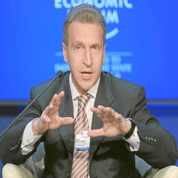Business as usual, as bureaucrats typically ignore Kremlin’s BoD ban against officials

In what seems to be a blatant defiance of Kremlin’s ban against top government officials sitting on state companies’ boards, Russia’s First Deputy Prime Minister Igor Shuvalov, three deputy Moscow mayors and a long roaster of representatives of other federal and Moscow city agencies were nominated to the board of the Russian Exhibition Center, more popularly known in and outside the country as VVTs from its Russian name abbreviation.
Legally, the facility is an open state joint-stock company that provides expo services to corporations and individual exhibitors as well as serving as a relaxation amenity for Muscovites and visitors to the Russian capital every year. The decision to appoint Shuvalov as the new BoD chairman is explained by the federal status of the facility that was built as a one-spot show-casing platform for the industrial progresses and economic achievements of Soviet republics, hence each republic during the communist era had and still has an eponymous pavilion in the sprawling center in northern Moscow.
Specifically, Shuvalov’s main mission is to give the facility a major facelift and restore it back to its Soviet-era elegance and relevance as a modern place for relaxation and shopping spree in line with today’s economic realities. Also, the decision to include Moscow city government officials on the new BoD can similarly be explained by the fact the City Hall currently holds a 30% stake in the facility, an asset that needs close monitoring from Ulitsa Tverskaya 13.
These decisions seem logical, especially, when one considers the government’s plans to sublease the pavilions to their Soviet-era republics for 50 years for an annual symbolic rent of just one ruble. However, the only problem is how they correlate to the Kremlin’s recently adopted ban that forbids all bureaucrats at all levels of public governance from sitting on the BoDs of state-owned and/or affiliated corporations.
Expectedly, this move hailed by government officials, local and international investors as a right step in the right direction in terms of boosting corporate governance practices, fighting corruption and unavoidable conflicts of interests among bureaucrats juxtaposing their official government functions as ministers with corporate duties as board chairpersons (see the relevant article in this edition, titled, Kremlin launches radical overhaul of state corporations’ boardroom compositions).
If other lower-ranked bureaucrats appointed to the VVTs BoD could be excused for not knowing the Kremlin’s position on this issue, the same cannot be done for Shuvalov, who, as a deputy prime minister, had taken an active part in the draft of the ban resolution. This is a typical case of the biblical adage about ‘the right hand not knowing what the left hand.’
Otherwise, how else can such discrepancies between officially declared objectives and their practical realizations be explained other than the traditional manifestations of the perennial problem with ineffective implementation of officially adopted policies, even at the highest political level, or the practice of doing business as usual, even when new laws are in place, or the strictness of Russian laws being fully diluted by their poor execution and enforcement.
Whatever the explanations, such approach is completely faulty and represents a one-way road to certain failure. This is particularly important to note today, taking into consideration the Kremlin’s current modernization policy expected to lift Russia onto the pinnacle of global economic dominance in the post-crisis era.
Put differently, this means that if all involved in the execution of state policies will not act in complete unison, the declared lofty objectives of Russia becoming an innovative economy with a modern information society among the world’s top nations in terms GDP will remain only as dream, a sort of mirage that can be seen at a distance, but totally attainable in practice.












 Web design,
Web design,